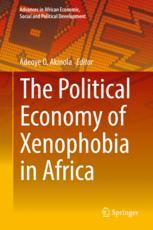

Most ebook files are in PDF format, so you can easily read them using various software such as Foxit Reader or directly on the Google Chrome browser.
Some ebook files are released by publishers in other formats such as .awz, .mobi, .epub, .fb2, etc. You may need to install specific software to read these formats on mobile/PC, such as Calibre.
Please read the tutorial at this link: https://ebookbell.com/faq
We offer FREE conversion to the popular formats you request; however, this may take some time. Therefore, right after payment, please email us, and we will try to provide the service as quickly as possible.
For some exceptional file formats or broken links (if any), please refrain from opening any disputes. Instead, email us first, and we will try to assist within a maximum of 6 hours.
EbookBell Team

4.8
14 reviewsThis book analyzes the phenomenon of xenophobia across African countries. With its roots in colonialism, which coercively created modern states through border delineation and the artificial merging and dividing of communities, xenophobia continues to be a barrier to post-colonial sustainable peace and security and socio-economic and political development in Africa. This volume critically assesses how xenophobia has impacted the three elements of political economy: state, economy and society. Beginning with historical and theoretical analysis to put xenophobia in context, the book moves on to country-specific case studies discussing the nature of xenophobia in Nigeria, South Africa, Zambia, Ghana and Zimbabwe. The chapters furthermore explore both violent and non-violent manifestations of xenophobia, and analyze how state responses to xenophobia affects African states, economies, and societies, especially in those cases where xenophobia has widespread institutional support. Providing a theoretical understanding of xenophobia and proffering sustainable solutions to the proliferation of xenophobia in the continent, this book is of use to researchers and students interested in political science, African politics, peace studies, security, and development economics, as well as policy-makers working to eradicate xenophobia in Africa.